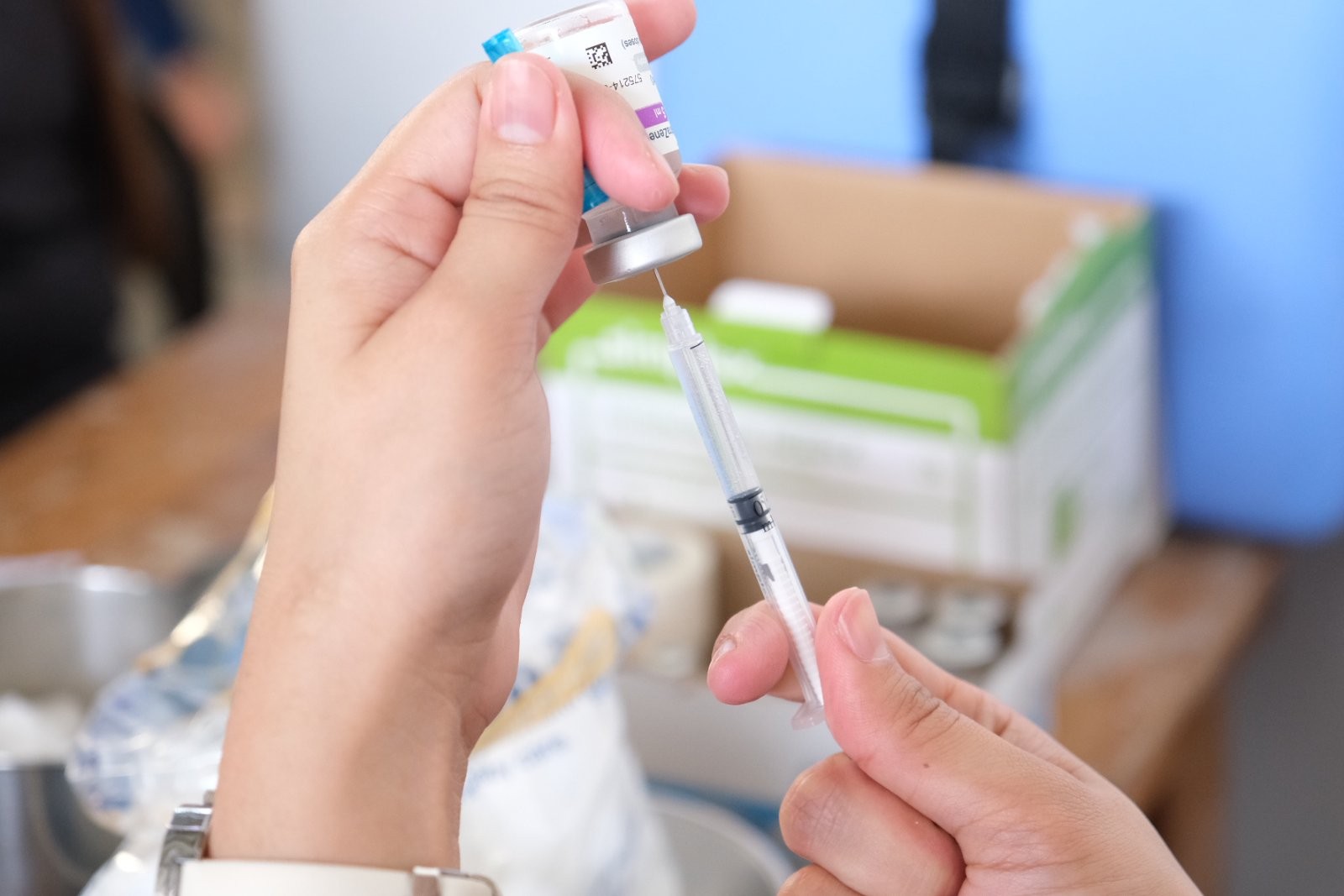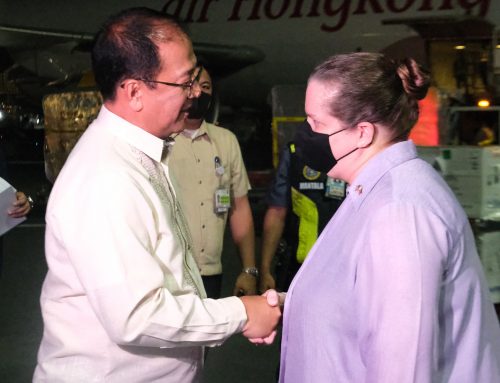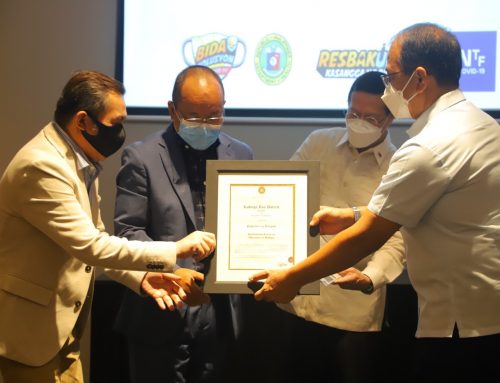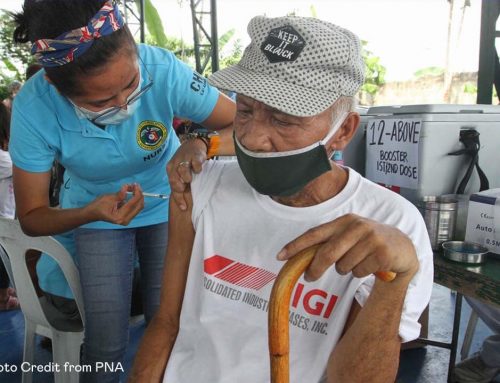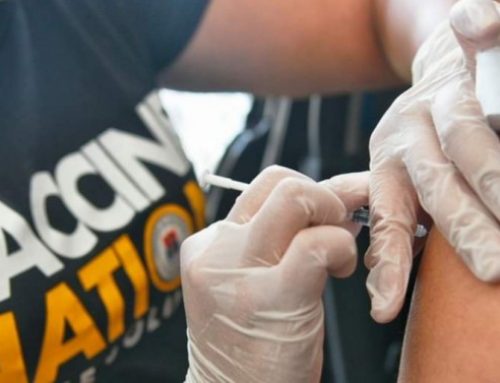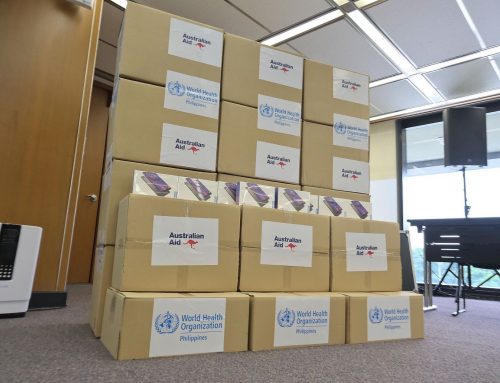PASAY CITY — There are has been sharp decline in the number of adult Filipinos who are unwilling to get the COVID-19 jab, which according to the National Task Force Against COVID-19 officials is an indication of the major gains achieved by the national vaccine program.
According to a survey conducted by the Social Weather Station (SWS) from December 12 to 16, 2021, vaccine hesitancy stood at only 8% in December 2021, compared to the 18% which was recorded in September 2021.
“Napakaganda po ng mga resulta ng survey na ito. Ito ay nagpapatunay na naging epektibo ang kampanya ng pamahalaan upang makumbinsi ang ating mga kababayang magpabakuna na,” NTF Chief Implementer and vaccine czar Secretary Carlito G. Galvez, Jr. said.
“This is not only a victory for the national government but for our nation as a whole. We were able to achieve this through the invaluable assistance of our local government units, our partners from the private sector, members of the media, and of course, all Filipinos had themselves vaccinated,” he added.
The SWS survey further showed a 25% drop in vaccine hesitancy between the second and fourth quarter of last year. To recall, the country registered a vaccine hesitancy of 33% in May 2021.
The decrease in vaccine hesitancy from May to December 2021 was noticeable across all age groups, as it went down from 14% to 6% among 18 to 24-year-olds; 17% to 5% among 25 to 34-year-olds; from 17% to 6% among 35 to 44-year-olds; 20% to 8% among 45 to 54-year-olds; and from 18% to 14% among adults 55-year-old and above.
The unwillingness to get vaccinated fell from 9% in May to 3% in December among college graduates; from 15% to 4% among junior high school graduates; from 18% to 14% among elementary graduates; and 36% to 20% among those belonging to non-elementary graduates.
On the other hand, the willingness among college graduates to get the COVID-19 jab dramatically increased from 32% in May to 55% in June. This figure further rose to 64% in September to 87% in December, showing, an increase of 23% during the said period.
Based on these figures, there has been an increase of 55% in willingness to get vaccinated from the second to the fourth quarter of last year.
The willingness of college graduates to be vaccinated increased from 34% in May to 36% in December; from 31% to thirty-five percent 35% among junior high school graduates; 27% to 32% for elementary graduates; and, 14% to 41% for non-elementary graduates.
Meawhile, vaccine hesitancy among Metro Manila residents dropped from 16% in September to 13% in December. There was, however, a 6% increase among people in Luzon get the jab, rising from 29% to 35%; an increase of 3% among residents in the Visayas, growing from thirty-five percent (35%) to thirty-eight percent (38%); and an increase of 17% among Mindanaoans, going up from 29% in September to 46% in December.
Comparing the SWS survey results with the data from the website Our World in Data, vaccine hesitancy in the Philippines is now lower than other countries in the world, including the United States (26%), Spain (12%), Japan (12%), Italy (17%) and the United Kingdom (17%).
In the meantime, the government launched the Resbakuna sa Botika and Resbakuna sa Klinika this week in a bid to further expand the vaccination coverage in the country and to hit the target of administering at least 72.16 million booster doses this year.
The said programs were rolled out initially in seven partner pharmacies and private clinics in Metro Manila and will soon be expanded to more areas.
The vaccine czar reiterated his appeal to the Filipino people to get vaccinated as soon as possible in order to get additional protection against COVID-19 and its emerging variants.
“Lahat po ng ating bakuna ay libre, ligtas at epektibo. Kunin po natin ang pagkakataong ito para magpabakuna na, at maprotektahan ang ating sarili at mga mahal sa buhay,” he said.
As of January 21, the Philippines has already administered a total of 122,889,494 vaccine doses. Of this number, 57,095,695 are already fully vaccinated. END


